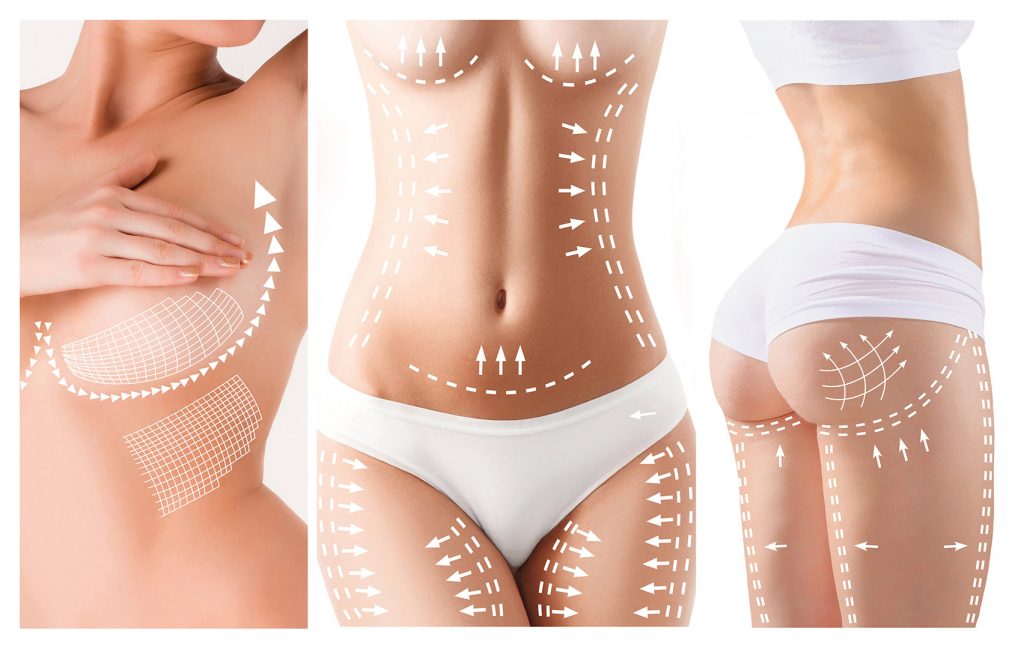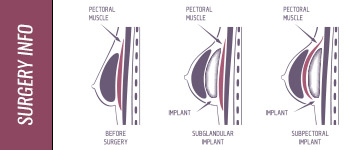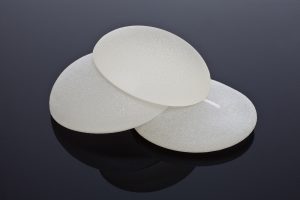TYPES OF PLASTIC SURGERY

Plastic surgery includes both reconstructive and cosmetic surgery.
Reconstructive plastic surgery is used to correct abnormal structures of the body. These abnormalities are usually caused developmentally, or through tumors or diseases.
Reconstructive plastic surgery is typically performed to improve functions, however it is sometimes performed where a normal appearance is desired.
On the contrary, cosmetic surgery is performed to improve your appearance and self-esteem. Cosmetic surgery involves reshaping parts of the body that are otherwise functioning properly.
Cosmetic Surgery includes:
- Botox
- Blepharoplasty (Eyelid Surgery)
- Breast Augmentation
- Breast Lift
- Breast Reduction
- Breast Implant Replacement/Removal
- Brow Lift
- Buttock Augmentation (Butt Enlargement)
- Buttock Lift
- Chemical Peel
- Dermabrasion
- Endoscopy (Keyhole Plastic Surgery)
- Face Lift
- Facial Implant
- Injectable Fillers
- Radiesse
- Restylane
- Juvederm
- Endermologie
- Thermage
- Sclerotherapy
- Facial Scar Revision
- Forehead Lift
- Arm Lift
- Gynecomastia ( Male Breast Tissue ) Reduction
- Hair Replacement
- Intense Pulsed Light Treatment
- Laser Hair Removal
- Laser Vein treatment
- Laser Skin Resurfacing
- Labiaplasty
- Liposuction
- Mentoplasty ( Chin Surgery )
- Chin Reduction
- Microdermabrasion ( Skin Rejuvenation )
- Neck Lift
- Otoplasty ( Ear Surgery )
- Rhinoplasty (Nosejob Surgery)
- Rhytidectomy ( Face Surgery )
- Thighplasty ( Thigh Lift )
- Thread Lift
- Tummy Tuck
COSMETIC SURGERY AND PLASTIC SURGEON INFORMATION
Cosmetic surgery, reconstructive surgery, plastic surgery: Are they different? Yes.The over-arching term, Plastic Surgery, comes from a Greek word plastikos, which means to give form to something, to mold it.
Cosmetic surgery is performed for the purpose of enhancing a person’s appearance.
Reconstructive surgery uses some of the same techniques and may often have similar outcomes, but is done for the purpose of repairing a defect or injury.
In practical terms, plastic surgery and cosmetic surgery are used interchangeably.
Techniques have improved since 3,000 B.C.
Ancient Egyptians left papyrus accounts of facial repair. Doctors in ancient India used skin grafts and rebuilt missing noses. The ancient Romans knew how to rebuild damaged ears.
European surgeons from the 15 th century onwards experimented, but it wasn’t until the 19 th century, with the introduction of sterilization and anesthetics more effective than all-the-rum-you-can-drink, that things really took off. (Or were put back on!)
Skip To Your Section:
Current Advances
Cosmetic Surgery Myths
Benefits of Cosmetic Surgery
Risks of Cosmetic Surgery
Correcting for Age
Repairing Sun Damage
Recovery
Post-op Complications
Choosing a Cosmetic Surgeon
Other Pages About Plastic Surgery

CURRENT ADVANCES
During the 1990s cosmetic surgeries increased in the U.S. by more than 175%, with liposuction being the most commonly performed procedure, followed by breast augmentation.
Microsurgery has greatly increased the range of possible procedures.
What used to be simply “a facelift” is now a variety of more refined and detailed techniques which can be combined and sequenced to match an individual’s unique needs.
SOME COSMETIC SURGERY MYTHS
Myth: A surgeon is a surgeon, so shop around for the cheapest one you can find.
This would be risky. There’s no mandated training for a general surgeon to hang out his shingle as a cosmetic surgeon. It would be wise to do some homework. Interview several and choose one who has credentials and certification by The American Board of Plastic Surgery.
When considering expense, remember:
- A surgeon asking a low fee may well be offering less care or service
- Your good health and appearance are precious, so why would you toss them into the hands of an unqualified person?
- Acquiring and maintaining a high quality surgical facility is expensive, as is using the best anesthetics and instruments. These costs have to be figured into the surgical fees charged. You surely want the best for yourself.
Myth: All surgeries leave nasty scars.
Not true any more. Because of recent developments and inventions, incisions can be very small and placed in hard-to-see locations. The resulting scars are often virtually invisible.
Keep these points in mind too:
- Scars take up to a year to fully heal
- Different individuals have different scarring responses, partly dependent on genetics
- A scar which heals up in a faulty way can often be corrected by follow-up surgery
Myth: Cosmetic surgery is for rich people, vain people, movie people.
Not true any more. With the recent proliferation of techniques and reduction of costs, many people can afford cosmetic surgery. Many plastic surgeons offer financing plans and that’s a question to ask potential cosmetic surgeons when you’re shopping around for one.
Myth: The latest cosmetic surgery technique must be the best one.
Not necessarily true. Innovations are constantly being tried, but to determine which technique is best, studies must be done over a period of time, on enough patients, then peer-reviewed and published in reputable journals. Publication leads to more surgeons trying it out, which leads to more results that can be further studied and in this way we arrive at more certain knowledge of which techniques work the best, and for which purposes.
Myth: Liposuction is an easy way to lose weight.
Not true. Any reputable surgeon will ask you to lose as much weight as you can first, so as to improve your overall health. That’s because all surgery brings some risk, and the better your health is to start with, the better the results will be.
BENEFITS OF COSMETIC SURGERY
The benefits of cosmetic surgery can be enormous! When we improve our physical appearance, we tend to feel more confident, whether in social interactions or career paths, and this is true of both males and females.
Our Overall Proportions
Plastic surgery can improve a person’s overall silhouette to give a stronger confidence in female-ness or maleness. Some examples are:
- Breast augmentation
- Breast reduction (available for men also)
- Breast lift
- Liposuction on abdomen, thighs, or buttocks
CORRECTING FOR AGE
The force of gravity pulls on us so that eyebrows sag, cheeks and neck form wrinkles, and eyelids droop. In a sense, this all makes our face into a disguise instead of an expression of who we are. It creates a look of tiredness, sadness, or crossness that may be at variance with how we actually feel. Our real self can re-emerge on our face after such procedures as:
- Facelift or mid-facelift
- Neck lift
- Eyelid surgery (blepharoplasty)
- Frown muscle excision
REPAIRING SUN DAMAGE
Fun in the sun presents us with its bill after we reach the age of 40 or so. Leathery skin, extra wrinkles, and irregular coloration all make us look older than we are. But we can dodge the bill with such techniques as:
- Microdermabrasion
- Laser skin resurfacing
- Chemical peels
RISKS OF COSMETIC SURGERY
All surgery brings risk. A good candidate for plastic surgery is in good overall health and has the psychological stability to deal with the recovery period. There is often some post-op pain or discomfort, temporary bruising and swelling, some restriction on activity, and some work-time lost.
RECOVERY IS STRAIGHTFORWARD IF YOU FOLLOW DOCTOR’S ORDERS
Your cosmetic surgeon will give you written instructions for how to care for yourself afterwards. There’ll be such things as:
- Medications for pain or infection prevention
- Creams or lotions – to promote healing
- Special garments – to give support
- Wound care procedures – changing dressings, protecting stitches, keeping the site dry etc.
- Bedrest – for a short time only, and not for all procedures
- Gradually increased activity – to gradually rebuild strength and promote circulation without endangering wound healing
There’ll be some follow-up appointments to monitor your recovery, so be sure and keep them. With careful self-care and compliance with the plastic surgeon’s advice, most people have a complete recovery and a happy outcome.
Post-Op Complications Sometimes Happen
Serious complications are rare, but if they do happen, you should notify your plastic surgeon immediately. Things to watch for are:
- Sudden extra bleeding – stitches sometimes come loose and need to be redone.
- A feverish temperature – this can indicate infection.
- Discoloration around the wound area, especially greenish or yellowish – another sign of infection and a sign that local blood circulation is perhaps impaired
- Increased pain – this usually accompanies infection
- Increased numbness, tingling or prickling – some of this may be expected, but notify your cosmetic surgeon if it seems to persist or increase. It could indicate nerve injury.
- Increased swelling (beyond what may be predicted by your plastic surgeon) – could be a hematoma forming (a pooling of blood).
A minor hematoma can be drained with a needle, but if it’s left untreated, can lead to infection and even necrosis (death) of the skin.
A major hematoma, if it occurs at all, will show up in the first 12 hours or so post-op and is a medical emergency. You’ll notice pain, swelling and general agitation. Be sure and report this immediately to your plastic surgeon. Hematomas can turn into blood clots, which can then break free and circulate in the blood. This is life-threatening, but rarely happens.
CHOOSING A COSMETIC SURGEON
You can start by asking among your friends and acquaintances. Their experiences might point you towards or away from certain cosmetic surgeons.
The phone book will give lots of possibilities and you can choose from among those located most conveniently
Internet searches will also turn up lots of possible plastic surgeons. Remember to make your search location-specific, as in: “cosmetic surgeons in the Denver area”
Once you have a list of possibilities, it’s time to do some homework.
Look at the doctor’s website if you can. This will tell you a lot, such as what procedures this plastic surgeon performs and what they’re like, and whether this surgeon offers a free initial consultation.
Call the most promising ones, ask if they’ll give a free consultation, and if so, make an appointment. Learn more about choosing a plastic surgeon.
Some questions to ask cosmetic surgeons
- Are you credentialed and certified by The American Board of Plastic Surgery?
- Which hospitals do you have privileges at?
- Are the surgical facilities where you work accredited? You can check on this with:
- The AAAASF (American Association for Accreditation of Ambulatory Surgery Facilities), www.aaaasf.org/Facilities, or
- The AAHC (Accreditation Association for Ambulatory Health Care, Inc.), www.aaahc.org/accreditation/search.shtml
- How long have you been doing plastic surgery?
- Can I speak with some of your previous patients about what it was like?
- Am I a good candidate for cosmetic surgery?
- How long have you been doing this procedure? (i.e., the one you’re interested in having)
- If something goes wrong, what will you do?
You can also check with the state medical board for complaints or malpractice suits against the doctor.
While you’re talking with the cosmetic surgeon, glance around his offices and notice whether they seem to be well organized, clean, and pleasant to be in.
Does the surgeon answer your questions readily? Does he give you enough time to get clear on everything? You want to choose a plastic surgeon you feel comfortable with, one you feel you can trust. Together you can arrive at a clear understanding of what procedure(s) would be best for you, and why, which is the first step towards achieving a happy outcome.
OTHER PAGES ABOUT PLASTIC AND COSMETIC SURGERY:
Benefits & Risks
Have you thought about the benefits VS the risks of cosmetic surgery? Click above to get started.
Am I a Candidate for Cosmetic Surgery?
Cosmetic surgery isn’t for everyone. Are you a good candidate?
The Art of Cosmetic Surgery
Learn more about the history of cosmetic surgery.
The Puzzle of Beauty
Information about the effects of evolution on our physical appearance.
Financing Cosmetic Surgery
Cosmetic surgery isn’t just for the rich and famous these days. There are credit companies out the that specialize in financing cosmetic procedures, many with very affordable interest rates and low monthly payments. Click above to learn more about these financing options.
Our Cosmetic Surgery Directory can help you get in touch with plastic and cosmetic surgeons in your area that will discuss your goals and, more importantly, help you reach your goals.
The Cosmetic Surgery Directory wants to help you understand the benefits & risks of cosmetic surgery procedures, help you determine whether you are a candidate for cosmetic surgery and help you figure out how you will eventually finance cosmetic surgery.




